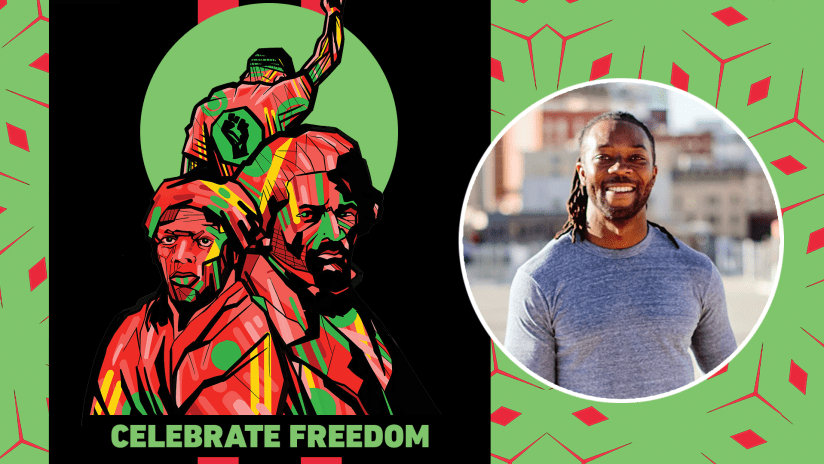“A people without the knowledge of their past history, and origin, is like a tree without roots.” – Marcus Garvey
The cries of freedom and equality have been echoed throughout our country’s checkered past. Yesterday marked a new dawn in US history, as President Joe Biden signed the Juneteenth National Independence Day Act, making Juneteenth an official US holiday.
What was once a day overlooked by many, will now get the observance and celebration it rightfully deserves. But to understand the significance of the celebration at hand, we must first turn back the pages of time.
Even though the Emancipation Proclamation was issued in 1863, it didn’t actually free the approximately four million enslaved Black men, women and children. Slavery was relatively unaffected in many border states and throughout the Confederacy. It took two and a half years for freedom to be ensured.
Imagine what some of our most iconic cities looked like two weeks before June 19th, 1865 … enslaved people were still being sold in a nation that had just spent the previous five years embroiled in the shadows of civil war. Although the Proclamation had little effect on the immediate freedom of enslaved African Americans, it became our country’s first symbolic shift toward racial equity of any kind.
On June 19, 1865, Union General, Gordon Granger, arrived in Galveston, Texas, to proclaim that all of the enslaved were finally free. Not only did Black people become free men and women, but under the law they were granted equality of the same personal rights as their former masters. In issuing those orders, General Granger was ushering a celebration of the emancipation of enslaved people in America.
Juneteenth! Had you heard of it before? Prior to moving to Texas, I hadn’t really either. Like many young Americans growing up in the '80s and '90s, much of what I knew about our country’s Civil War history was what the watered-down textbooks that lay on my desk during my school days.
Sadly, I had accepted the myth that most of us do that Lincoln’s Emancipation Proclamation ended slavery in America. All of that changed last year with the murder of George Floyd. His death wounded me in ways I did not know I could be wounded, sending a message that at the end of the day, the lives of Black people in America do not matter.
Out of the ashes of the anguish I was experiencing, I had a fortuitous phone call and lunch with one of my mentors that I will never forget. After walking around for a while, he looked me in the eye and told me this:
“Never forget that so many people sacrificed their very lives so that you and I could be standing here today as free Black people. Though our ancestors knew that they may never see the freedom they dreamed of having in their lifetime, they endured the hardships of racism so that their children and future generations could have a chance of living freely.”
The foundation of the road toward freedom and racial equality has been paved by those who came before us. We honor the Black heroes of our past by sharing their story and inviting the world to bear witness to the reality that though all men are deemed to be created equal, the fight for equality is still a battle that rages on.
And though there is still much work to be done in the progress toward freedom, we celebrate Juneteenth with pride through the traditions of public readings of the Emancipation Proclamation, street fairs, park parties and historical reenactments.
I am deeply honored to be a part of the MLS Community, as we give credence to such a momentous occasion that was birthed and celebrated 155 years ago. And when we sing the Black National Anthem, let us be sure to Lift every voice and sing. I know I will be.
As we say down here in Texas, Happy Juneteenth Ya’ll.













